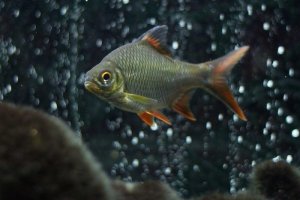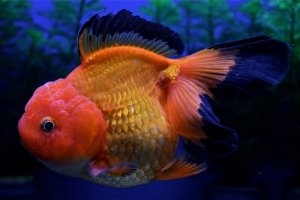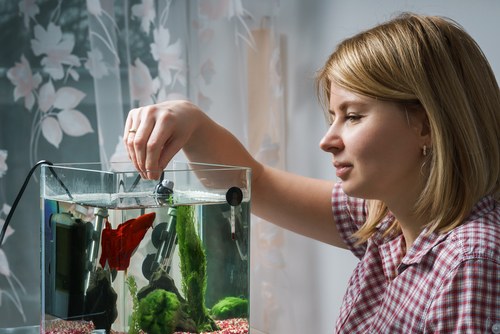
As you may have seen in many pet stores, even on television and in magazines, the elegant and bold-colored Siamese fish drifting in a tiny bowl with no filtration or heating system, maybe a few plants and decorations, but not much more than that.
I cannot be more candid, this practice is completely cruel and not at all the way any tropical fish, especially a Betta fish should be kept.
Yes, some sources state that they can survive in low-oxygen environments and small puddles in the wild, they are labyrinth fish and can gulp air from the surface when they need it. These are facts in severe cases in the wild, where they need to survive because they do not have any other means, however in captivity you should provide your fish with a proper aquarium.
The difference is do you want your fish to survive and be miserable, or thrive and be content?
In short, depending on the climate where you live, you may need a heater, and unless you want to clean your tank every other day, you will need a filter. But let us first look into the betta fish as a species and its care needs before we get into filters and heaters.
Breed Overview
| Origin | South East Asia originated from Thailand. |
| Lifespan | Around 2-5 years. |
| Size | They are 6 -8 cm, (2.4-3.2 Inches), rarely reaching more than 3 inches. |
| Colors | Betta Fish come in Color and Finnage Variations, but mainly red and Blue. |
| Water pH | Neutral pH of 7.0 or higher. |
| Tank Size | A tank Size of 3 -5 gallons is ideal, however, one-gallon tanks are acceptable for a single Betta. |
| Temperament | Aggressive especially towards other males, relatively social and active, they are also quite intelligent. |
| Water Type | Fresh Colder Water. |
| Water Temperature | Between 24-28 degrees Celsius, or (75-82 Fahrenheit) |
| Difficulty Level | Intermediate to Advanced. |
Species Information
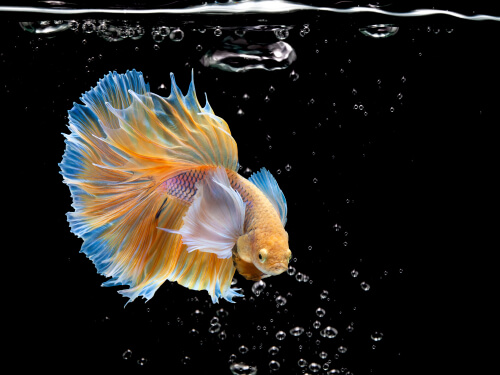
The betta Fish comes from the anabantoid family, they have a unique labyrinth organ that allows them to breathe air from the atmosphere and underwater. Also called the Siamese fighter they were originally bred as fighting fish in Thailand for gambling games.
Today however they have become popular pets for their exquisite color and finnage variations, and their curious, social antics. Betta Fish are generally available in bright dark blue or red colors, though you get more color variations, even some rare colors such as the silver and purple Betta.
Betta fish are labeled as aggressive, and territorial, especially towards other males and females, however, females can be kept together in a group of four or more fish, where they will develop a ranking order or hierarchy. There are a few other fish species that you can keep with your Betta fish, which we will discuss shortly.
Caring For Betta Fish
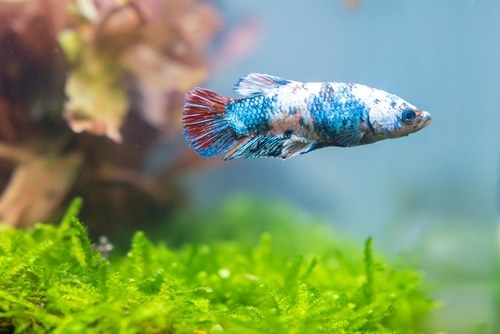
Betta fish have striking intense colors, and entertaining antics which you will enjoy watching. They are eye-catching in any aquarium, however, they do need proper care and water conditions to thrive.
I am going to provide you with a brief guide for caring for your Betta fish, some links will be included in each step should you need more in-depth information from trusted sites.
1. Setting Up Your Aquarium
In short, for a contented and healthy Betta fish, these are your aquarium requirements;
Should you need more comprehensive information Wikihow has an outstanding page that offers step-by-step instructions.
- Tank Size – The Betta fish needs a tank that is between 3-5 gallons for a single Betta fish, and bigger should you be adding tank mates. You can get away with a 1-gallon tank at least for a single Betta, with more regular maintenance.
- Water Conditions – Betta Fish require cooler water conditions of 24 – 28 degrees Celsius (75 – 82 Degrees Fahrenheit), which is pH neutral, to more alkaline pH 7.0 or more, and soft water. They can survive in low oxygen levels and colder water, but it will affect their immune system and eventually their health.
- Substrate – With thorough research and experience I have found that gravel and sand are the best substrates, as it is the easiest to keep clean and safest in terms of collecting debris and waste. A darker shade of gravel will highlight the attractive colors of your betta fish.
- Lighting – betta fish do need a clear indication of day and night, but should not be kept in direct sunlight, but rather in an area with indirect or dappled light. You can similarly invest in a tank light that you can switch on and off.
- Decorations – Tank decorations create much-needed hiding spaces which Betta fish enjoy, as they are territorial creatures and they do need enrichment. Driftwood, Rocks, caves, and Castles that have smooth edges and no sharp protrusions are ideal.
- Plants – You can invest in both live or synthetic silk-type plants for your Bettas, though I recommend Live plants as they help to clean your tank and oxygenate the water. Also, use floating plants as male Betta fish create bubble nests.
2. Choosing A Betta Fish And Adding The Fish To The Tank
You can get good quality and healthy Betta fish from a Trusted breeder or pet store. It is important to select a juvenile or young fish, rather than an old or baby fish.
A Healthy Betta Fish will be active and alert, with bright coloring and no brown patches, or white spots near the gills or on the fins. The eyes will be clear and black, and the fins will have no damage to them. Likewise, check the tank conditions and other fish, the water should be clear, and other fish in similarly good condition.
3. Maintaining Your Tank
Maintaining your tank becomes exceptionally difficult if you do not have a filter system. You will have to clean out the entire tank daily, though if you have a filter it is important to do a weekly water change, by removing at least 20 -30 % of the tank water from the bottom with suction and replacing it with the same amount of new conditioned water. Plants and décor should be cleaned when needed, and waste from dead plants removed.
4. Selecting Tank Mates
If you wish you can select a few different fish species companions to cohabitate with your Betta fish, they may even be welcomed and provide good exercise for your betta chasing them around. Just make sure to add the tank mates before your Betta fish.
Select fish that are fast swimmers and tend to shoal, that do not have long tails and fins, and that are not brightly colored. Bettas will nip at fish with long fins. Try to avoid larger and more aggressive breeds of fish. A few species to consider are
- Tetras – Small and fast.
- Loaches – Bottom feeders to clean your tank.
- Malaysian Trumpet Snails – Snails help to clean the tank.
- Corydoras – Catfish breed and bottom feeder.
- Rasboras – Colorful, fast, and peaceful.
- Danios – Peaceful and fast.
Feeding
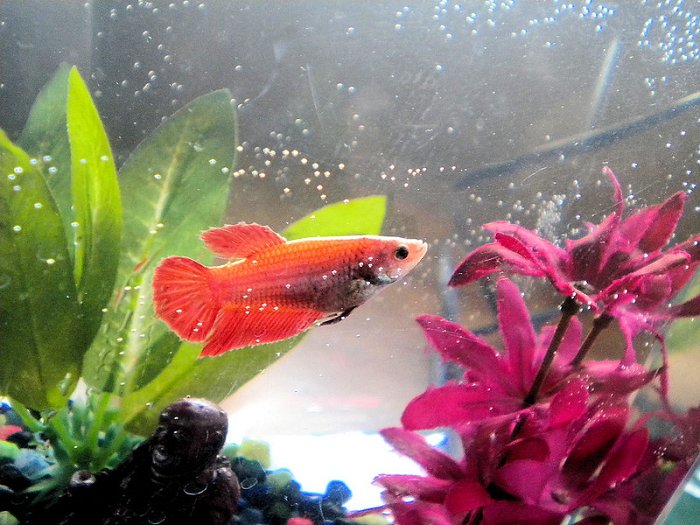
In their natural environment the Betta fish are quite hardy Carnivores and will eat worms, larvae, mosquitos, and even smaller fish, or generally what is available.
You can feed your betta fish good quality pellets or flakes, as well as live and frozen foods including:
- Brine Shrimp
- Insect Larvae
Betta fish are greedy eaters and should be fed once a day, enough for them to finish within 3-5 minutes. You can also skip a day in between which helps with digestion.
Breeding
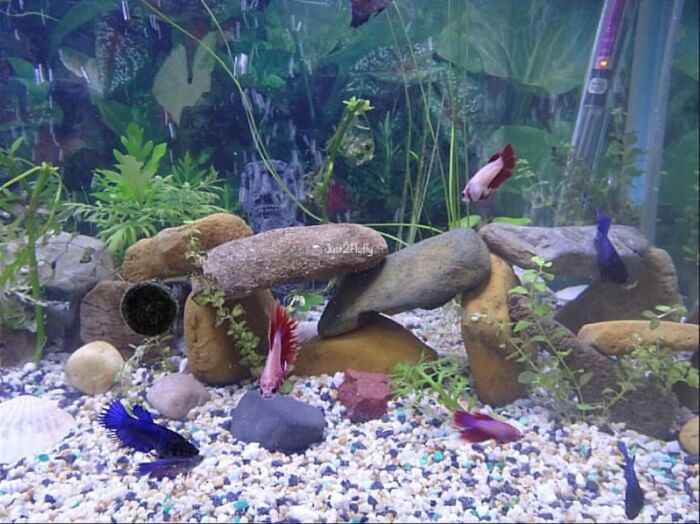
If you choose to breed betta fish you will need a separate breeding tank with a clean bottom and plenty of floating plants or Almond leaves for the male to build bubble nests.
The female is introduced into the tank first, and the male is kept in a separate compartment or bowl in the tank, if they show interest and no sign of aggression the male can be placed in the tank. The male will build a bubble nest which the female inspects and accepts, where they will mate, or reject, and then you need to remove her.
After spawning the male takes care of the eggs and fry, until they become independent, in which case you will need to remove the male, and start separating them. I recommend that you read about breeding from our more comprehensive page on the subject; “How to Do Betta Fish Mate”.
Common Health Issues
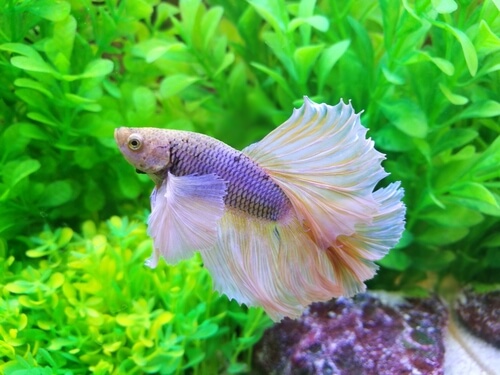
Betta fish need a spotless tank with optimal water conditions, and a good diet to stay healthy and thrive. A few main conditions that ail Betta fish include;
- Ich – A parasite causing White spots on the gills and fins of the fish.
- Velvet Disease – An infection causing a gold-brownish coloration of your fish.
- Fin Rot – A bacterial infection that spreads from the fins to the body.
- Dropsy – Causing Bloating because of a compromised immune system.
- Physical Damage – From handling, bites from other fish, or injuries from tank decorations.
Almost all these conditions are either caused, or aggravated by poor water quality, and dirty tanks.
In all these cases the fish will need to be quarantined in a tank with optimal water conditions, and medication such as antibiotics and water conditioners can be added. In our article “Betta Fish Behaviour Before Death” you can read more about health issues and diseases.
Do Betta Fish Need Filters And Heaters?
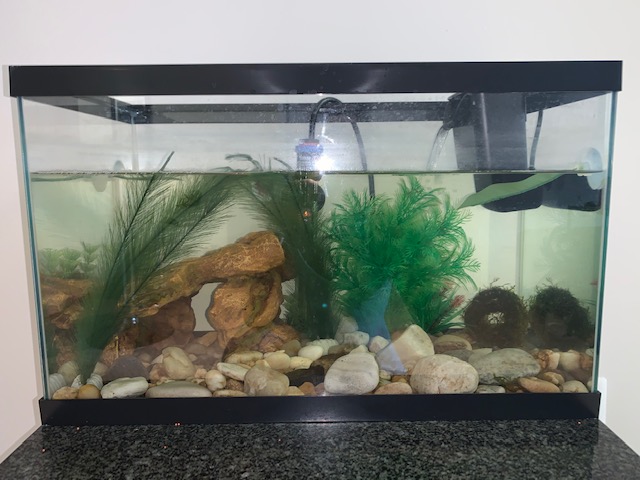
From the information that I have given you so far, you should be convinced by now that your Betta fish do need a filter and a heater. In very rare cases and conditions you may be able to go without a heater, but a filter will be more tricky. So let’s look at it, and why you may need a heater or filter for your betta fish;
Do Betta Fish Need Filters?
The answer is YES, most, unless you would like to clean the entire tank every day and replace the water with properly conditioned water. A practice that will cause stress for your fish, and much frustration for you. Here are a few reasons why you need a filter;
- The filter removes particles from the water and supplies the substrate with beneficial bacteria to help process fish waste. The Beneficial bacteria convert ammonia from fish waste to nitrites and then nitrates which are a much safer compound. The build-up of ammonia and nitrites cause the most health concerns in fish.
- Filters circulate the water in your tank causing aeration, which provides more oxygen for your fish to thrive. Though Bettas are labyrinth fish that can live in low oxygen levels, they should not have to and should be able to enjoy their aquarium.
Compare yourself to being placed in an airtight box, with only a tiny hole for oxygen, and having to live in your own waste, the case is similar for any fish in an aquarium without a filter.
Best Types Of Filters For Betta Fish
Because betta fish are slow swimmers, they need a filter that does not have a strong current, which could make it difficult for them to swim, or even stay stationary, thus Internal filters, or back-hanging filters are the best choice for betta fish. Sponge filters are also an excellent choice.
Filter Maintenance
You can clean your filter every few weeks with clean conditioned water, remove some of the media from your filter and replace it with new media.
Do Betta Fish Need A Heater?
Betta fish are tropical fish, thus they require warmer water temperatures. In some cases, many aquarists use a room heater, or you may live in an area with a very hot climate, and as long as the temperatures are consistent, you can consider not using a heater.
Though Betta fish need consistent temperatures of Between 24-28 degrees Celsius, or (75-82 Fahrenheit), and anything warmer or cooler could be detrimental for your Betta fish. Though Betta fish can live in colder water, it does affect their immune system, and it will not be comfortable for them.
The Best Types Of Heaters For Betta Fish
The best types of heaters for betta fish are those that you can immerse in the water. Here are a few options in heater types for betta fish;
- Inline Heaters – In-Line heaters are not immersible but are one of the best outside heaters should you choose this type of heater, as it still keeps consistent water temperatures.
- Substrate Heaters – substrate heaters consist of coils or cables that are placed underneath your substrate and radiate heat from the bottom upwards into the tank.
- Filter and Heater Combos – many aquarium filters come as a combination including an in-line heater heating and water filtering simultaneously.
- Other Heating Methods – You can use a room heater in a small enclosed room that heats up to 78 degrees Fahrenheit as another heating method. Sunlight can likewise provide heat, however, it may cause your tank to become dirty quickly, and can overheat the water, then again there will be no heat at night. Another method is floating hot water bottles on the surface of the Aquarium, however, this is just a temporary solution.
Things To Note:
All in all, my advice is to save yourself the trouble, and risk of other heating methods, and the electrical bill of a room heater, and invest in a proper tank heater.
In Conclusion
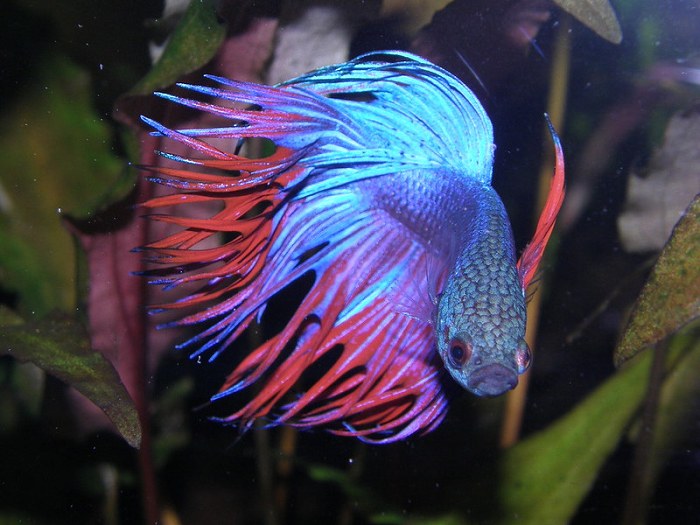
Betta fish are commonly kept as pets, they have absolutely striking color varieties and are quite intelligent and social fish that love to interact with their humans. If you want to keep your Betta fish healthy, happy, and thriving, I do urge that you rather invest in a proper heater and tank filter, than try to go without the latter.
The tank size is also important, as even if they are happy to be kept on their own, they still need ample space, and tank décor and plants to keep them occupied. If you are still set on having an aquarium without a heater or filter for your Betta fish, you can always consider a Self Sustaining Ecosystem, which is much more effort initially, but very rewarding if done correctly.


